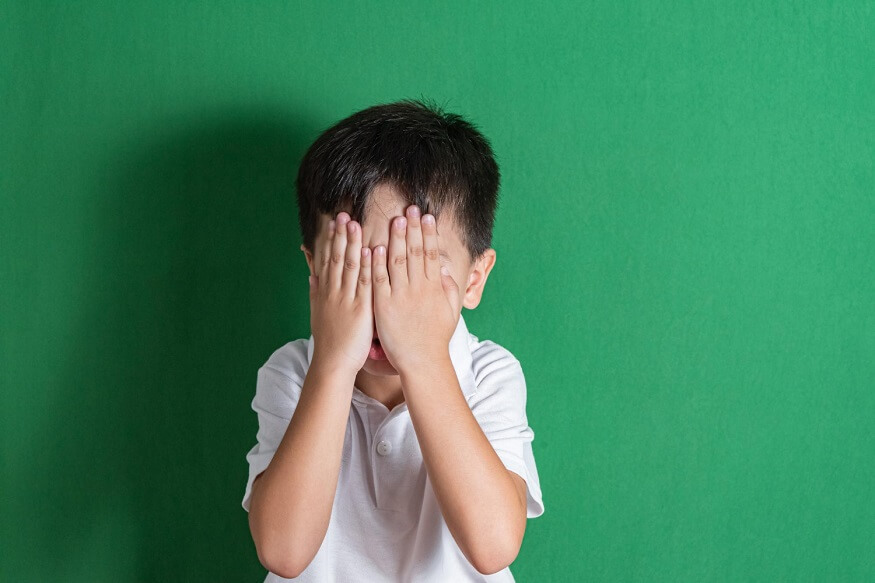Children are the purest form of the soul where they only see the good in others and are inherently trusting in nature. They find it difficult to discern a deceitful mind and take people’s actions positively and at face value. This lends them to significant dangers, and thus we hear of cases where strangers have approached children intending to harm them. There are significant times of the day whether at home or at school where children may be unsupervised and thus susceptible to potential harm from unscrupulous strangers. To keep them safe in such scenarios, we need to educate and train children to handle situations with strangers.
This blog presents certain tips for parents and children to guard against such incidents and keep children safe.
Also Read: 10 Harmful Effects of Using Mobile Phones on Children
1) Do not accept gifts or treats from strangers
Offering a gift or treat is the most common modus operandi of strangers carrying bad intentions towards children. Offering candy or a popular toy is an easy way to lure in innocent children. The child gets occupied with their favourite toy or treat and the perpetrator takes advantage of this distraction to take advantage of the child. Parents must teach their kids to never accept any gifts or treats from strangers. Parents should give children a small list of acquaintances, a kind of ‘trust list’ whom they can only accept gifts or treats from. This is to even guard against acquaintances who might have ill intentions towards the children.
2) Do not accompany strangers
Children are innocent and gullible souls. They are easily lured into something they like. There have been ample cases where a stranger has bluffed children into accompanying them on a false pretext which has resulted in serious crimes such as kidnapping, trafficking, or even worse. Parents must educate their wards to never accompany a stranger to any location. The trust list as introduced above can be employed here as well. Parents can guide their children to only accompany a small set of trusted individuals and no one else, even if they insist.
3) Do not take a lift from strangers
Taking lift has been identified as one of the most prominent precarious scenarios when it comes to crimes perpetrated by strangers against children. While on their way from school or from their friend’s house, children tend to take a lift from strangers. The charm of a quick commute lures them into this dangerous but well-laid-out trap. Children must be very careful and avoid taking lifts from anyone unless they are someone on the trust list as defined by their parents.
4) Do not share personal information with strangers
Certain individuals may not plan to harm the children but use them to inflict physical or economic harm on their parents or family. The trusting and uninhibited nature of children leaves them prone to easily reveal private and personal information to strangers. Information such as their address, whereabouts of their parents, other contact details, passwords, etc could be information that unscrupulous strangers might try to extract from children. Parents must first be mindful before sharing any such information with children. Secondly, parents must educate children to not share such private information and also apprise them of the potentially harmful effects of such information being leaked out.
5) Be sure of the identity of digital strangers
Strangers are found not just in the physical realm, but also in the digital world. This phenomenon is more prominent in the digital world given that children are so actively connected to the internet in a significantly no holds no barred manner. It is even easier for ill-intentioned strangers to approach children digitally, by even impersonating someone the child trusts. Such incidents leading to cybercrimes and frauds have become commonplace in today’s world and children need to be made well aware of such dangers. Children must be educated about the merits of private browsing, fake accounts/ids, and popular cybercrime modus operandi so that they are well-guarded and prepared if something comes their way.
Also Read: Internet Safety for Kids
6) Do not wander too far away from home/school
Children, especially small children, should ideally be under supervision at all possible times. They must be advised to not wander away too far, and especially not into isolated locations away from the watch of parents or teachers. Even if they are away from home, children must stay in locations that are crowded and well-lit.
7) Stay in a group
Children must avoid venturing out alone, especially in lonely locations and after dark. Children must be advised to always stay with a group where other children and adults are keeping a watch on them while they engage in their activities.
8) Good touch vs bad touch
Sexual harassment is a prevalent crime that children suffer through both while at school and at home. Parents and teachers need to teach children the difference between a good touch and a bad touch. Children must be taught to identify a bad touch and how they should react if they perceive a bad touch scenario. These could happen in school, at home, or even in public spaces. Children must be taught firstly how to sense a bad touch, how to get out of that situation and actions to take later.
9) Basic defence mechanisms
Learning the basics of self-defence is an essential skill for children to adopt. Whether it is in terms of self-defence martial arts or even as simple as shouting out loud for help. Parents and schools need to teach children survival and defence tactics in the face of such danger if it does happen to befall them despite all the care being taken.
10) Share. Ask for help
It is of utmost importance for us to build a psychologically safe listening environment for children. We must encourage children to share their apprehensions, their thoughts, worries, pains, embarrassments, etc without them feeling the fear of being judged or rebuked. Parents must set aside time daily to talk to their wards about how their day went and listen to their thoughts, respond and empathise with their emotions. Children should be encouraged to share any such incidents that might happen and not hesitate in asking for help.
Also Read: Emotional Safety: Meaning, Types, Examples
Conclusion
At EuroSchool we ensure that all safety measures are implemented in collaboration with school administrators, staff, students and local authorities to provide a safe and secure environment for our students. We have clear protocols and CCTV cameras in place for handling visitors, emergencies and monitoring any potential security threats.










